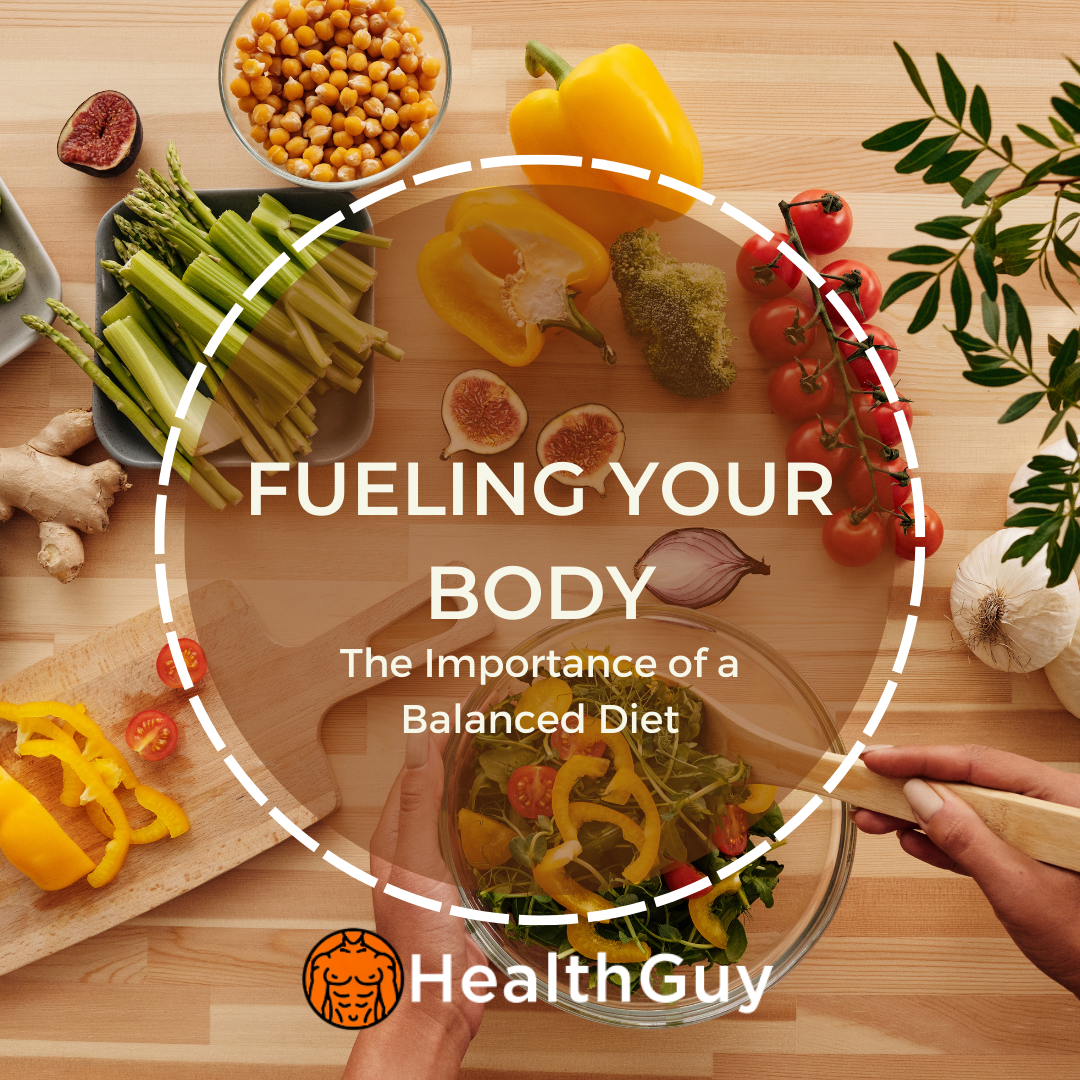
Fueling Your Body: The Importance of a Balanced Diet
A balanced diet is essential for good health and well-being. It provides the body with the nutrients it needs to function properly, helps maintain a healthy weight, and reduces the risk of chronic diseases. However, with so many different diets and nutrition trends out there, it can be hard to know what a balanced diet looks like. In this article, we will explain the importance of a balanced diet and how to get the right mix of nutrients for optimal health.
What is a Balanced Diet?
A balanced diet is a diet that provides the body with all the essential nutrients it needs to function properly. These nutrients include carbohydrates, proteins, fats, vitamins, and minerals. Each nutrient has a specific function in the body and is necessary for good health. A balanced diet also includes an adequate amount of water, as hydration is crucial for maintaining bodily functions.
The Importance of Carbohydrates
Carbohydrates are the body’s primary source of energy. They are found in foods such as bread, rice, pasta, fruits, and vegetables. A balanced diet should include a variety of carbohydrates, including complex carbohydrates like whole grains, which provide sustained energy and are fibrin fibre. Simple carbohydrates, such as those found in sugary snacks and drinks, should be consumed in moderation, as they can cause spikes in blood sugar levels and lead to weight gain.
For more information on Carbohydrates read our article: The Role of Carbohydrates in a Healthy Diet: Myths and Facts
The Importance of Protein
Protein is essential for building and repairing tissues in the body, such as muscles and organs. It is also important for maintaining a healthy immune system. Good sources of protein include lean meats, fish, eggs, beans, nuts, and seeds. It is important to consume a variety of protein sources to ensure that the body is getting all the necessary amino acids it needs for optimal health.
For more information on proteins read our article: Protein: The Superhero Nutrient Your Body Needs
The Importance of Fats
Fats are important for providing energy, insulating the body, and protecting vital organs. However, not all fats are created equal. Saturated and trans fats, found in foods like fried foods, processed snacks, and fatty meats, should be limited, as they can increase the risk of heart disease. Instead, the focus should be on consuming healthy fats, such as those found in olive oil, nuts, and fatty fish like salmon.
For more information on fats please read our article: The Skinny on Fats: What You Need to Know for Optimal Health
The Importance of Vitamins and Minerals
Vitamins and minerals are essential for maintaining a healthy body. They play a role in everything from bone health to immune function. Good sources of vitamins and minerals include fruits, vegetables, whole grains, and dairy products. It is important to eat a variety of these foods to ensure that the body is getting all the necessary nutrients it needs.
How to Get the Right Mix of Nutrients
To ensure that you are getting the right mix of nutrients in your diet, focus on consuming a variety of foods from each food group. The US Department of Agriculture recommends the following breakdown for a healthy diet:
- Fruits and vegetables: At least half of your plate should be filled with fruits and vegetables.
- Grains: At least half of your grains should be whole grains, such as brown rice and whole wheat bread.
- Protein: Choose lean protein sources, such as chicken, fish, beans, and nuts.
- Dairy: Choose low-fat or fat-free dairy products, such as milk, yoghurt, and cheese.
In addition to eating a balanced diet, it is important to stay hydrated by drinking plenty of water throughout the day.
For more information on Official Diet Plans please read our article Official “Diet Plans” for Healthy Lifestyle
Conclusion:
In conclusion, maintaining a balanced diet that includes a variety of foods from all food groups is crucial for optimal health. By making small changes to your diet, such as choosing whole grains over refined grains, incorporating more fruits and vegetables, and choosing lean protein sources, you can improve your overall health and reduce the risk of chronic diseases. Remember, a balanced diet is not about deprivation or strict rules, but rather about making informed choices that will nourish your body and support your health and well-being.
